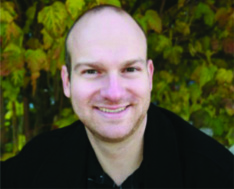Kennedy, Nixon, & the Debate of the Century
Overview
Regarding John F. Kennedy’s 1960 election, one historian has written, “It was that first moment in our history when we saw that television can transform a political candidate from a candidate into a celebrity, and it changed the whole contours of our politics.”
Join Professor Allen Pietrobon as he takes us back to the Eisenhower Era, a time before the “celebrity president.” We will examine the lives and backgrounds of John F. Kennedy and Richard Nixon and see how Kennedy became president by dominating the television narrative and using innovative campaign techniques that set the model for presidential election campaigns to this very day. The first-ever televised presidential debate took place in 1960; the result was seen as being so disastrous (for Nixon) that it would be 16 years before presidential candidates agreed to debate live on TV again.
In this presentation, we’ll use the 1960 presidential election as our lens to explore American politics and culture in this pivotal era in history.
Professor Pietrobon’s Recommended Reading:
1960: LBJ vs. JFK vs. Nixon: The Epic Campaign That Forged Three Presidencies, by David Pietrusza
The Making of the President 1960, by Theodore White
An Unfinished Life: John F. Kennedy, 1917-1963, by Robert Dallek
Nixonland: The Rise of a President and the Fracturing of America, by Rick Perlstein
Discussion Questions:
- Kennedy and Nixon rose together in political life. Why do you think the men became political rivals, rather than partners?
- 1960 marked the first ever televised presidential debate. Seeing what the result of that first debate was, do you think televised debates are an effective way to help decide who should be president?
- Kennedy and Nixon both used “the media” very differently during their campaigns. What made Kennedy’s media strategy so successful?
- During the campaign Kennedy was frequently charged with being “too inexperienced” to be president, but he is now seen to have been an effective president. On the other hand, Nixon had a deep well of political and executive experience having served as VP, yet his subsequent presidency was ultimately brought down by scandal. How much weight should be placed on relevant experiences as a qualification to be president?


